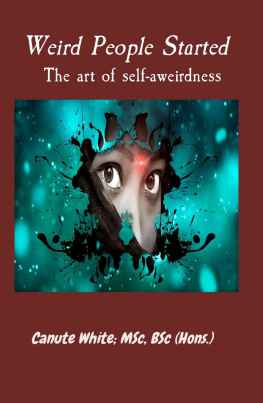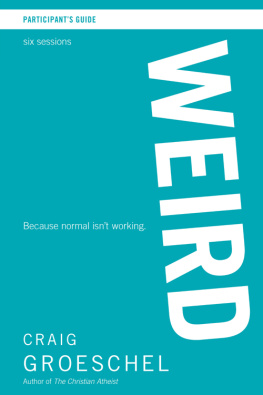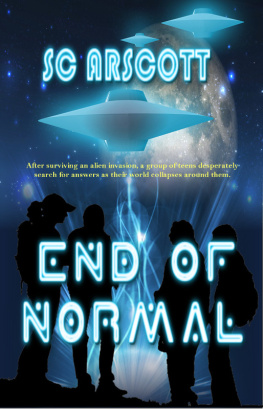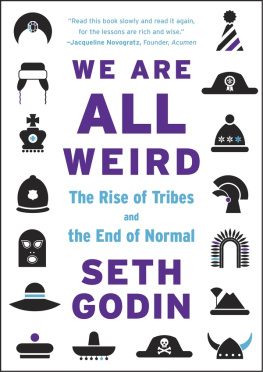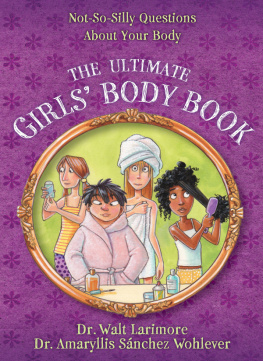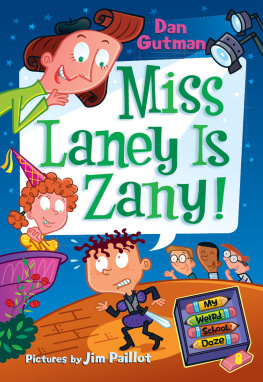
F IRESIDE
Rockefeller Center
1230 Avenue of the Americas
New York, NY 10020
Visit us on the World Wide Web:
http://www.SimonSays.com
Copyright 2001 by Marlin S. Potash, Ed.D., and Laura Potash Fruitman
All rights reserved,
including the right of reproduction
in whole or in part in any form.
FIRESIDE and colophon are registered trademarks of Simon & Schuster Inc.
ISBN-10: 0-7432-1754-3
ISBN-13: 978-0-7432-1754-5
MEDICAL DISCLAIMER
This publication contains the opinions and ideas of its author. It is intended to provide helpful and informative material on the subjects addressed in the publication. It is sold with the understanding that the author and publisher are not engaged in rendering medical, health, psychological, or any other kind of personal professional services in the book. If the reader requires personal medical, health, or other assistance or advice, a competent professional should be consulted.
The author and publisher specifically disclaim all responsibility for any liability, loss, or risk, personal or otherwise, which is incurred as a consequence, directly or indirectly, of the use and application of any of the contents of this book.
We dedicate this book to Perle and Monroe Potash may we always make you proud
Acknowledgments
This book could not have been written without the help of our wonderful editor, Doris Cooper, who shepherded it with good humor all the way; invaluable input from Hilary Potash Fruitman, our unofficial third author (we thought you were too young to be our coauthor when we started writing and you proved us wrong!); the patience of Steven, Jazz, and Tasha; and the insight of our agent, Todd Shuster.
Various professionals and organizations ensured that our information was accurate and up-to-date. We gratefully thank William Pollack, Ph.D., for his Real Boys and belief in our vision to help real girls; and Kathleen Cowan, who earned our admiration for reading the whole shebang in its rawest stage and giving us helpful notes. Also, eternal gratitude to Frank Petito, M.D., the professional colleague everyone should be so lucky to have in their corner. A special thanks to Amy Beecher for her terrific illustrations in Chapter 3, and to Bob Stein, who helped us edit the must-keep from the gotta-go.
Thanks to David Burgreen, Ben Diskant, Chris Fisher-Lochhead, Hannah Frank, Colleen Hall, Rachel Heyman, Dan Manso, Ben Preston-Fridman, Rachel Rosenberg, Matt Schneier, Nic van der Meer, and to the entire class of 2002 at Friends Seminary in Manhattan: Youve all been a great help with everything! Particular thanks go to David Arnold, former head of Upper School at Friends Seminary, and all the Upper Schoolers there, who were so generous with their time, energy, and ideas about adolescence.
Appreciation to Fiamma Arditi, Mary Pipher, Norine Johnson, Ph.D., Ronald Levant, Ed.D., The Hon. Sheila E. McGovern, Alfred Mendelsohn, Wendy Oppenheim, Kary Presten, Burt Rosenberg, John Sahag, and Sarah Snider for their unique contributions and inspiration along the way.
With gratitude to Planned Parenthood; Youth Crisis Hotline; Step Family Foundation; Womens Sport Foundation; Girls Incorporated; Students Against Destructive Decisions (SADD); Anxiety Disorders Association of America; Parents, Families and Friends of Lesbians and Gays (PFLAG); National STD Hotline; National Clearinghouse for Alcohol and Drug Information; National Domestic Violence Hotline; Rape, Abuse & Incest National Network (RAINN); National Eating Disorders Organization.
And to all the patients and friends who shared their stories about adolescence so that our readers could benefit. We hope they, too, have benefited by the reliving and rethinking. We know our readers will be as enriched by their generous sharing as we have been.
Contents
Getting It On
Getting Together
Getting Physical
Getting Powerful
Getting Over It
Getting Cool
Getting Familial
Getting Ahead
The Life List
Youre smart.
Youre funny.
Youre beautiful.
Youre strong.
Youre a nice person.
Youre interesting.
S o why do you feel so nervous, scared, dorkyso weird compared to everyone else?
We want you to know that everyone thinks: Im a freak. Im different. Im weird! Even the most popular girl, the most self-assured girl. First, theres the weirdness that happens when you feel out of it because youve grown breasts and no one else has, or youre the only one wearing a skirt to a party where everyone else has the new in-jeans. Then there are the times when you desperately want to fit in and worry that every word out of your mouth sounds weird.
Sometimes youre weird because of circumstances beyond your controllike the color of your skin or the size of your nose or your sexuality. Doesnt matter.
One of the reasons we wrote this book? We think weird is normal. Everyone feels that they are different. In our house, calling someone weird means acknowledging someone who is her own person, who believes what she wants, and who has the courage to express herself in that special way that no one else can copy.
We wrote this book to help you deal with your own particular brand of weirdness. So that after reading it, youll be able to say, Okay, yeah, Im weirdand thats totally normal.
Your parents rules make you feel like a 10-year-old.
You argue with your friends about new and intense issues like who is popular, who stuffs, who has a boyfriend, who is having sex, who uses drugs, where to hang out.
You feel pressure at school where, if you flub one math test, you worry about not getting into a good college.
And you feel the world at large bombarding you with wild ideas and images of the typical teen, as if there were such a thing.
To top it off, the pressures that probably hit hardest are those you put on yourself.
To help you get on solid ground and zap away that nagging, insecure feeling, consider what we call the Life List, a map for dealing.
The rest of this book is packed with facts, explanations, ideas, and stuff to help you make your own decisions, but the Life List has 16 guidelines to carry with you, like your house keys and lip stuff. Dont memorize themthis is no algebra exam. Just keep them handy.
1. Believe It
If you act like you think youre okay, everyone else will believe it, too. No one is born with confidence, but everyone can develop it.
It may sometimes seem there are voices inside you or around you trying to wear you down. Answer those voices when they call you lame. Take away their power by reminding yourself of your talents: You are someone who can tell a joke, run fast, play the guitar, decorate your roomwhatever it is that you have confidence in. Borrow it from yourself.
Now put your new (even if it feels fake) believe it image out into the world. Just like an actor, play a part and make your voice strong, express your opinions with gusto, and walk tall with your shoulders back.
If you project the strength you wish for, you will absorb it, like osmosis.
If you think its okay to sit at the lunch table alone, then it is. If you want to wear baggy clothes and be hip-hop, go ahead. If youd rather stay home Saturday night and write poems, do it. If you decide its okay, then it is. Thats the point.
2. Shout It Out
You hear a lot about expressing yourself but not much about how to do it. Shouting it out can make you feel like a player in your own life. Keeping quiet makes you feel smaller and weaker, less entitled and more depressed, as if your thoughts and words were less deserving than everyone elses.



